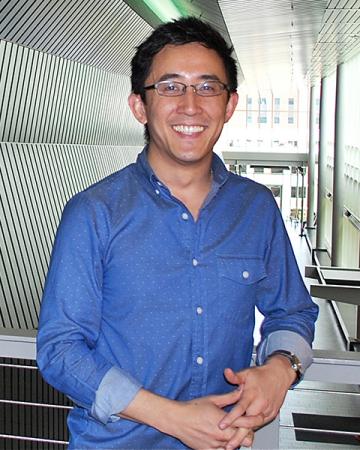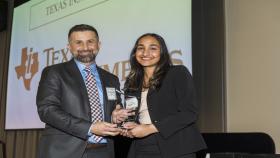Gabe Kwong, associate professor Wallace H. Coulter Department of Biomedical Engineering and a researcher in the Petit Institute for Bioengineering and Bioscience, wins Georgia Tech’s 2020 Sigma Xi Best Faculty Paper award.
His award is based on his lab’s paper, “Non-invasive early detection of acute transplant rejection via nanosensors of granzyme B activity,” published February 18, 2019, in Nature Biomedical Engineering.
Paper Abstract:
The early detection of the onset of transplant rejection is critical for the long-term survival of patients. The diagnostic gold standard for detecting transplant rejection involves a core biopsy, which is invasive, has limited predictive power and carries a morbidity risk. Here, we show that nanoparticles conjugated with a peptide substrate specific for the serine protease granzyme B, which is produced by recipient T cells during the onset of acute cellular rejection, can serve as a non-invasive biomarker of early rejection. When administered systemically in mouse models of skin graft rejection, these nanosensors preferentially accumulate in allograft tissue, where they are cleaved by granzyme B, releasing a fluorescent reporter that filters into the recipient’s urine. Urinalysis then discriminates the onset of rejection with high sensitivity and specificity before features of rejection are apparent in grafted tissues. Moreover, in mice treated with subtherapeutic levels of immunosuppressive drugs, the reporter signals in urine can be detected before graft failure. This method may enable routine monitoring of allograft status without the need for biopsies.
Gabe Kwong’s Nature Biomedical Engineering paper can be found here:
https://www.nature.com/articles/s41551-019-0358-7
Sigma Xi, The Scientific Research Society, founded in 1886 at Cornell University, is the honor society of scientists and engineers that recognizes scientific achievement. Its mission is to enhance the health of the research enterprise, foster integrity in science and engineering, and promote the public’s understanding of science for the purpose of improving the human condition.
Media Contact:
Walter Rich
Communications Manager
Wallace H. Coulter Department of Biomedical Engineering
Georgia Institute of Technology
Media Contact
Walter Rich
Keywords
Latest BME News
Jo honored for his impact on science and mentorship
The department rises to the top in biomedical engineering programs for undergraduate education.
Commercialization program in Coulter BME announces project teams who will receive support to get their research to market.
Courses in the Wallace H. Coulter Department of Biomedical Engineering are being reformatted to incorporate AI and machine learning so students are prepared for a data-driven biotech sector.
Influenced by her mother's journey in engineering, Sriya Surapaneni hopes to inspire other young women in the field.
Coulter BME Professor Earns Tenure, Eyes Future of Innovation in Health and Medicine
The grant will fund the development of cutting-edge technology that could detect colorectal cancer through a simple breath test
The surgical support device landed Coulter BME its 4th consecutive win for the College of Engineering competition.








